Establishing Consumer Protections for Research in Human Service Agencies
$14.99
BCBA CEUs: 1.5 Total CEUs | 1.5 Ethics CEUs
Read the following article and pass a 7-question quiz on it:
LeBlanc, L. A., Nosik, M. R., & Petursdottir, A. (2018). Establishing consumer protections for research in human service agencies. Behavior Analysis in Practice, 11, 445-455.
Brand: CEUniverse
Description
To earn credit, you will be required to read the article and pass a 7-question quiz about it. You can retake the quiz as many times as needed, but you will not receive exactly the same questions each time.
Abstract
Conducting research in practice settings is the primary mechanism for establishing a strong foundation of evidence for clinical decision making. In behavior analysis, this type of research frequently originates from university-based systems that have established institutional review boards. Independent human service agencies that want to contribute applied research to the literature base that is clinically meaningful and conducted in an ethical fashion must establish a research review committee (RRC). The purpose of this article is to provide information and guidance for establishing and maintaining the activity of an RRC in a human service setting.
15 reviews for Establishing Consumer Protections for Research in Human Service Agencies
| 5 star | 60 | 60% |
| 4 star | 40 | 40% |
| 3 star | 0% | |
| 2 star | 0% | |
| 1 star | 0% |
Sorry, no reviews match your current selections
You may also like…
-
Multimedia Tutorial

2 BCBA CEUs
Mastering the Basics of Visual Analysis
Katie Wolfe & Timothy A. Slocum4.31 out of 5(126)$19.99 Add to Cart Quick View -
Multimedia Tutorial

2.5 BCBA CEUs
Efficiently Searching the Academic Literature
Nicole Bank4.50 out of 5(2)$24.99 Add to Cart Quick View -
BundleSale!

32 Total BCBA CEUs
4 Ethics CEUs28 General CEUsCosmic Bundle
$319.88Original price was: $319.88.$216.98Current price is: $216.98. Add to Cart Quick View
Related products
-
Article Quiz

1 BCBA CEU
Derived Manding in Children with Autism: Synthesizing Skinner’s Verbal Behavior with Relational Frame Theory
Carol Murphy, Dermot Barnes-Holmes, & Yvonne Barnes-Holmes4.50 out of 5(16)$9.99 Add to Cart Quick View -
Article Quiz

3.5 Total BCBA CEUs
3.5 Ethics CEUsA Case Study in the Misrepresentation of Applied Behavior Analysis in Autism: The Gernsbacher Lectures
Edward K. Morris4.39 out of 5(57)$34.99 Add to Cart Quick View -
Article Quiz

1 Total BCBA CEU
1 Supervision CEUPredictors of Burnout, Job Satisfaction, and Turnover in Behavior Technicians Working with Individuals with Autism Spectrum Disorder
Marlena N. Novack & Dennis R. Dixon4.56 out of 5(50)$9.99 Add to Cart Quick View
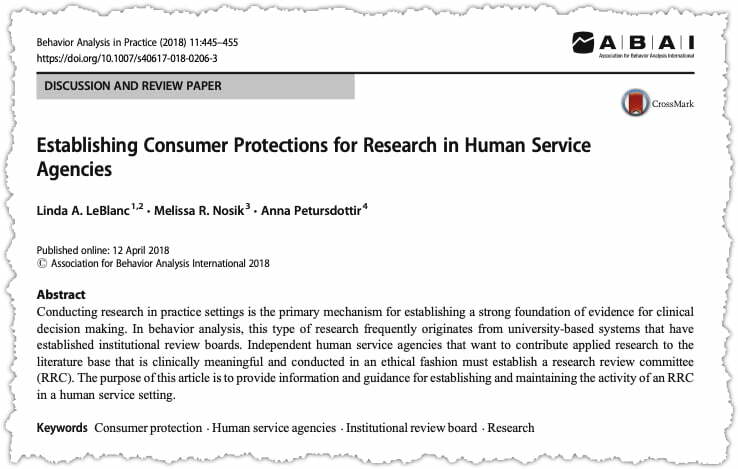






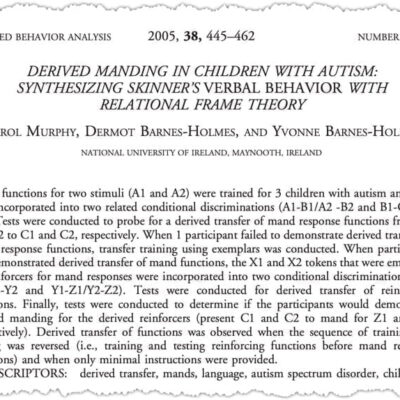
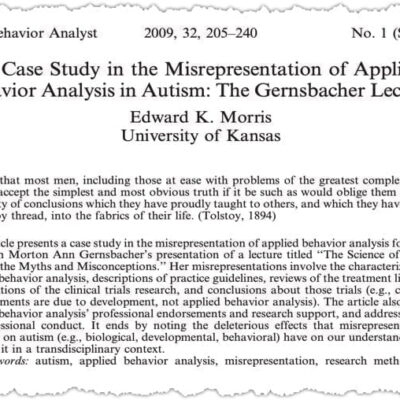
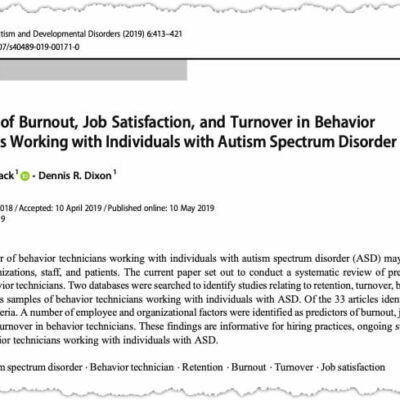

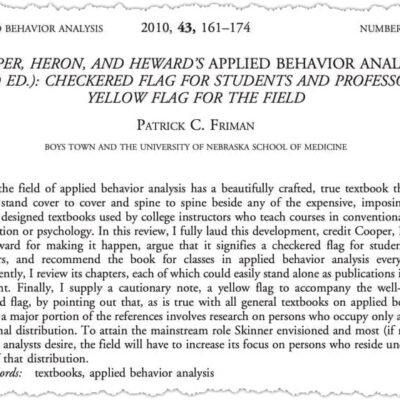
Excellent ethics course reminding proper ways to protect our clients
Helpful if you are considering practice-based research.
Excellent reminders of what informed consent should look like.
Great explanation of RRC.
I really don’t like how a singular error causes your score to be reduced by 2 points. During most quizes it doesn’t make a difference because you have to retake the quiz even if you get one wrong, but getting your score reduced by ‘2’ when you only got 1 question incorrect. What it “appears” to be doing is reducing the score by ‘1’ for selecting the incorrect answer and additionally reducing your score by ‘1’ for not selecting the correct answer. Might just be a technology adjustment?
That is not how our quiz scoring works. Some questions, however, have multiple correct answers (“check all that apply” type questions) and are worth multiple points. Thus, on those questions you can have your score reduced by 2 or more points if you do not select 2 or more of the possible correct answers (i.e., your score is not reduced by multiple points for making a “singular error” — it is reduced by multiple points for making multiple errors). If you believe a quiz is being scored incorrectly, please contact our helpdesk with a description and evidence of your claim.